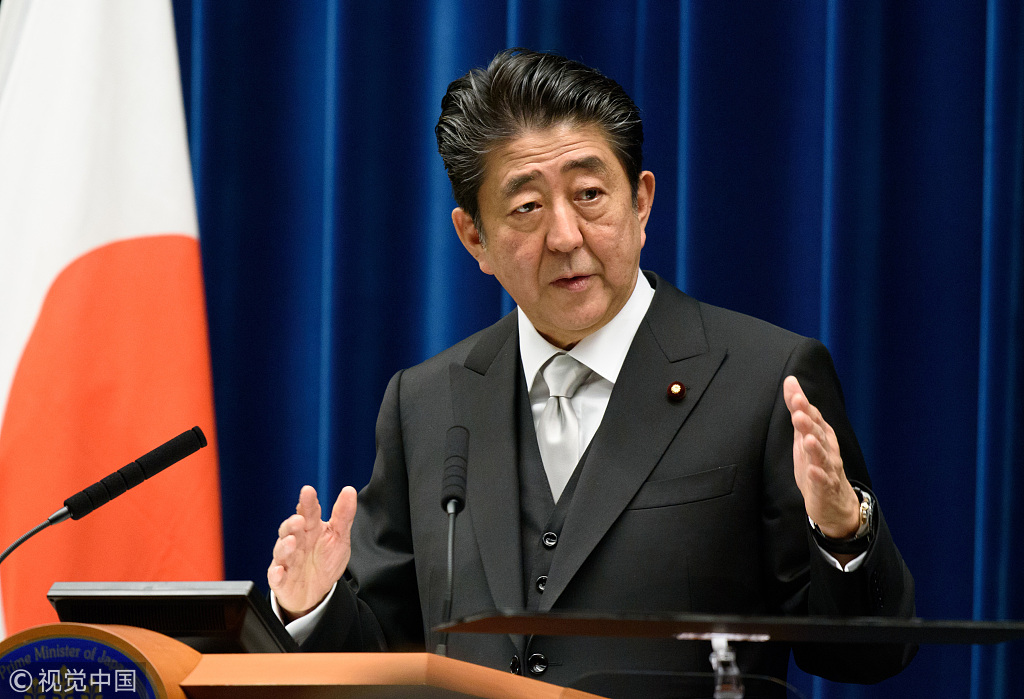
(File photo: VCG)
TOKYO, Oct. 15 (Xinhua) - Japanese Prime Minister Shinzo Abe confirmed Monday that the government will raise the consumption tax to 10 percent from the current 8 percent, telling his cabinet ministers to take necessary steps to mitigate the impact.
The new tax hike will come into effect on Oct. 1, 2019, Abe said at an extraordinary cabinet meeting.
According to a summary of the talks released by the government, Abe said he will make "all-out efforts and take all measures to prevent the tax hike from having a negative impact on the economy."
As Japan's population continues to both age and shrink, a phenomena referred to as a "ticking time bomb" by some economists and anthropologists, the 2-percentage point tax hike is believed to be the only way to cover the rising costs related to social welfare.
Some economists have voiced concern that the tax hike may see private demand diminish and hamper growth of the world's third largest economy, as was the case with the previous tax hike.
They have highlighted the fact that Japan's economy plunged into recession when the government raised the tax to 8 percent from 5 percent in 2014.
They have also noted that despite various iterations of the government's "Abenomics" brand of economic policies, Japan has a public debt amounting to 236 percent of its gross domestic product (GDP), the worst in the industrialized world, with social welfare costs expected to swell.
The Ministry of Health, Labor and Welfare requested a budget of 31.90 trillion yen (285 billion U.S. dollars), a new record high and a 2.5-percent increase from the previous budget, as spending on social security henceforth is expected to rocket to more than 32 trillion yen (286 billion U.S. dollars), up by about 600 billion yen (5.36 billion U.S. dollars).
These mounting costs are set against a backdrop of an increasingly tight labor market as Japan's workforce gradually becomes hollowed out.
With such downside factors in mind and in a bid to preempt the possible negative effects of next year's tax hike, Chief Cabinet Secretary Yoshihide Suga told a press briefing on the matter Monday that discussions were underway on ways to counter any serious fallout from the hike.
Such countermeasures will be drafted by the end of the year, he said, to coincide with the government crafting its draft budget for next fiscal year.
Suga restated that as per the government's position, the tax hike will be delayed for a possible third time, if a global economic crisis were to occur, such as the 2008 global financial crisis.


